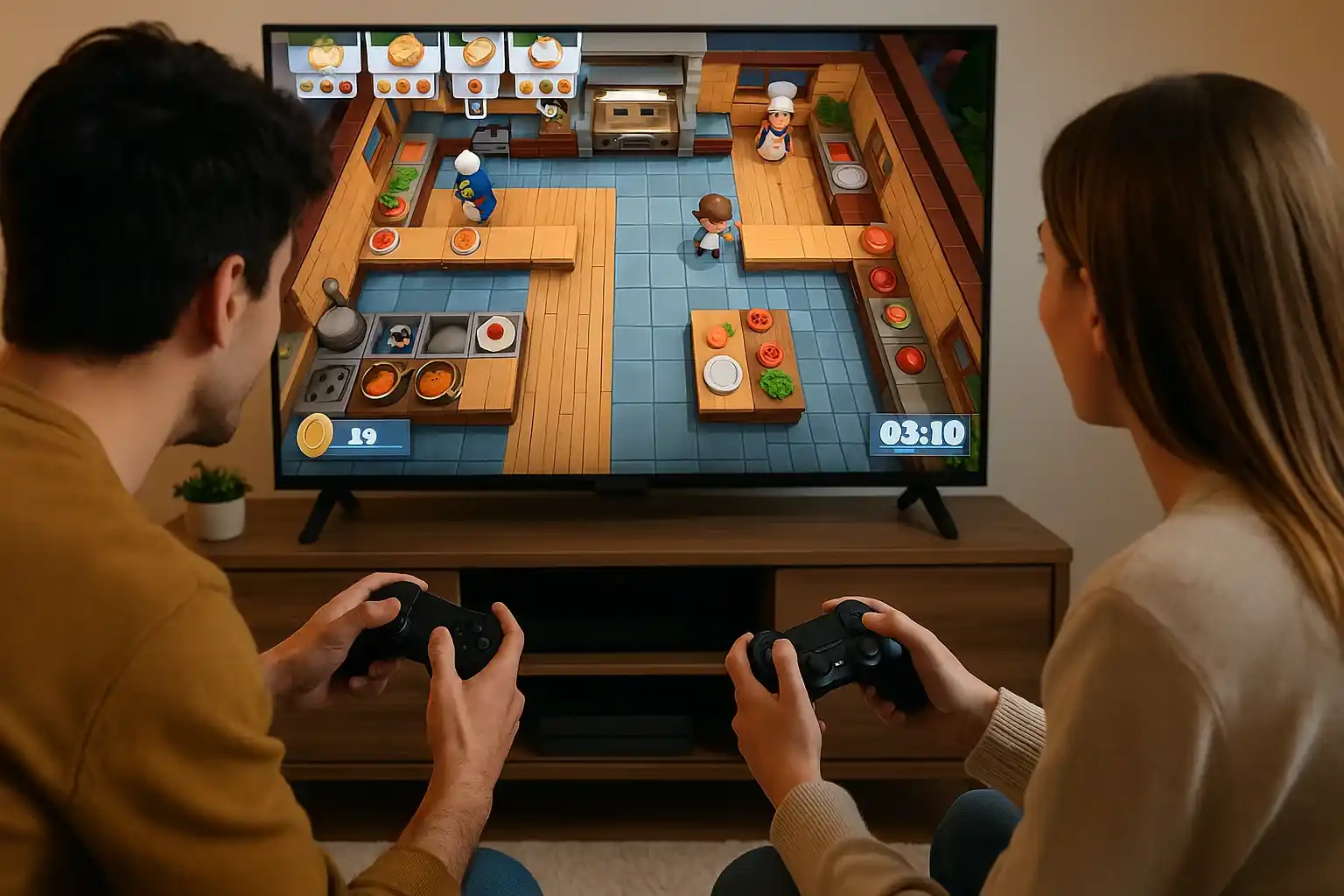We often think of games as a break from life – a quick scroll, a level or two, maybe a rematch at midnight. But what if they are not just a way to escape, but a tool to grow and develop soft skills: communication, thinking, self-regulation. We don’t just kill time, as due to games we learn to negotiate, make decisions under uncertainty, concentrate even when everything is colorful.
Just as a location tracker doesn’t monitor but helps us navigate, so too can well thought-out game mechanics become a navigator in developing ourselves. Take Number Tracker for example – the app is reliable, unobtrusive, out of the way, but always there when you need it. The benefits of games and pumped soft skills work on the same principle: they are learned imperceptibly and unobtrusively, but can be really important in some situations.
So today we are going to talk about those games that will help you develop soft skills. Here you will find examples, tips and tricks to make playing games not only interesting but also useful.
Games That Strengthen Communication and Teamwork
Overcooked! 2 — Learn to Talk Before It All Burns
- What it teaches: teamwork, role division, stress communication
Imagine a kitchen where the floor moves, your teammate holds a fire extinguisher instead of a bow, and a raccoon sits in a wheelchair. Welcome to Overcooked! 2. It’s not just hilarious – it’s a crash course in coordinating under pressure.
Each player has a different role: chopping, frying, delivering, washing dishes. At first, everyone yells. Then you will find some patterns: you begin to zone out, plan ahead, and use short, clear phrases. This is true communication growth.
Tip: Play this game with your coworkers – it’s a better team-building exercise than any Zoom icebreaker. By the way, do you know that the game is used in classrooms to teach leadership and time management in group work.

Among Us — Deception, Detection, and Digital Poker Faces
- What it teaches: reading people, persuasion, emotional intelligence
Sure, the game is full of memes and betrayal. But Among Us is also a master class in social dynamics. To win as a crew member, you have to read behavior.
Who is faking assignments? Who is too quiet? As an imposter, you must blend in, lie convincingly, and translate suspicion – skills that hone strategic thinking and emotional control. Well, even a study of Game Studies Quarterly states that the games that involve deception and trust increase players’ ability to gain perspective taking – a key skill in empathy.
Try this: Play a few rounds without voice chat. You will train your eye for non-verbal cues and timing – just like in a real negotiation or job interview.
Games That Sharpen Thinking and Decision-Making
Games don’t just test your reflexes – they challenge your ability to think ahead, weigh options, and handle consequences. And let’s be honest: sometimes your brain needs a workout that is more satisfying than a to-do list. So below you may find some game examples due to which you can build logic, strategy, and pattern recognition in subtle, engaging ways.
Return of the Obra Dinn — A Detective Story Without Hand Holding
- What it builds: deduction, observation, mental mapping
No maps, no markers and no tutorials – in Return of the Obra Dinn, you are dropped into a ghost ship with a magical watch – and your job here is to figure out what happened to every single crew member.
Be ready that it is not an easy task. You piece together timelines, accents, occupations, and facial expressions. The game forces you to slow down and think like a real investigator. By the way, this game is even used in game design courses as a masterclass in non-linear storytelling and cognitive engagement.
Lifehack: Take notes on paper while you play. The more you organize outside the game, the better your brain connects the dots inside it.
Portal 2 (Co-Op Mode) — Logic Meets Friendship
- What it builds: problem-solving, spatial thinking, collaborative reasoning
Portal 2 is already legendary for its clever puzzles but the co-op mode takes it to a new level. You and a partner should solve increasingly tricky rooms using portals, physics, and pure logic. What is the catch? You must coordinate and communicate. One mistake, and both of you are trapped.
The game is funny and humbling – one of the most creative ways to learn how different minds can think about the same problem.
Pro tip: Swap roles often. It’s a great way to stretch your thinking and avoid tunnel vision.
Games That Build Focus and Self-Regulation
Let’s be honest: the ability to stay calm, focused, and emotionally steady is more than useful – it is essential in today’s hyper-distracted world. But developing these traits doesn’t always require meditation apps or self-help podcasts. Sometimes, all you need to do is only to develop the right kind of game.
Stardew Valley — Routine That Grounds You
- What it builds: planning, emotional balance, mindful habits
At first glance, Stardew Valley is a cozy farming simulator. But under the surface, you may find a lesson in delayed gratification and habit formation. You plant crops, build relationships, and upgrade your life – one quiet day at a time. There is no boss to fight, no leaderboard to climb, just a growing sense of mastery and calm.
Tip: Set a real-time limit and play one in-game month at a time. Due to this you may transfer that sense of pacing into your offline routines. At the same time, study by the Oxford Internet Institute Confirms that players who are interested in farming simulators have lower stress levels and improved emotional regulation. Not bad, right?

Monument Valley — Zen in Motion
- What it builds: spatial focus, patience, aesthetic sensitivity
Download the game and you will be convinced: it is not just a puzzle game. Monument Valley is a work of art, as here each level unfolds like a surreal dream built on impossible geometry, combining illusion with elegant logic. There are no timers or penalties – just a quiet invitation to observe, explore and participate. The game encourages you to slow down, take a breath, and fully focus on finding the right path through visually striking landscapes.
Fun fact: The game’s level design is inspired by Japanese minimalism and the paradoxical architecture of M.C. Escher (combining simplicity and visual depth to create a meditative flow).
Lifehack: For best results, play with headphones in a relaxed environment – dim the lights, turn up the volume, and let the ambient music put you in a relaxed and centered state. It’s more than just a game, it’s a kind of psychological spa.
Playing Forward
So here is the twist: the games you’ve been playing for fun? They might be shaping you more than you think. Be it how you lead a team, solve a problem, or manage your mood – the right game builds the right skill. In a world full of noise, overstimulation, and overachievement, maybe it is time we give play the respect it deserves – not as an escape, but as a tool for growth, as games like the options above help us figure out where we are in life – and who we are becoming, one level at a time.



